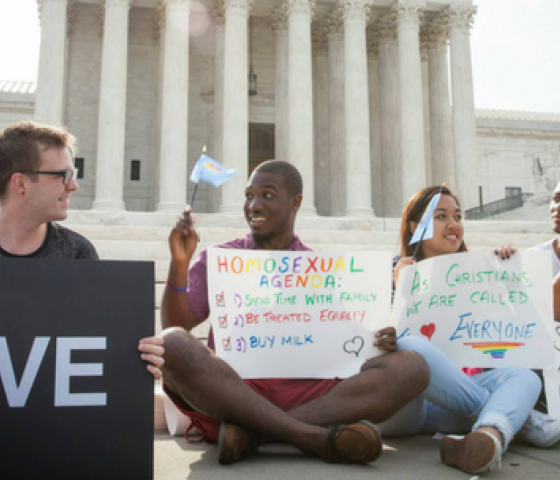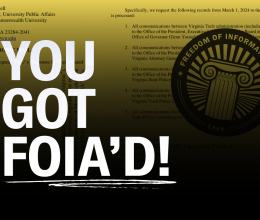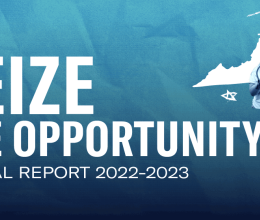ACLU’s amicus brief supported university’s efforts to protect academic freedom
Richmond, VA— The Virginia Supreme Court today ruled that Virginia Attorney General Ken Cuccinelli may not use a Virginia fraud law to obtain from the University of Virginia the private communication records of a global warming professor formerly employed there.
The ACLU of Virginia had filed an amicus brief with the high court arguing that the constitutionally-protected right of academic freedom should prevent Cuccinelli from obtaining the records. The American Association of University Professors, the Union of Concerned Scientists, and the Thomas Jefferson Center for the Protection of Free Expression joined the ACLU on the brief.
“If academic freedom means anything, it is that scientists and other scholars should be able to communicate freely without fear that the government is looking over their shoulders,” said ACLU of Virginia Executive Director Kent Willis.
In its decision, the Supreme Court came to the same conclusion as an Albemarle County Circuit Court -- which also rejected Cuccinelli’s attempt to obtain the university’s records pertaining to global warming expert Michael Mann -- but applied a different line of reasoning. The circuit court ruled that Cuccinelli failed to comply with the Virginia Fraud Against Taxpayer Act because he did not state a reason to for wanting to see the records as required by the law. The Supreme Court held today that the VFTA requires the entity that is required to produce records be a “person” but that UVA is an institution, not a person.
Cuccinelli, whose opposition to the science of global warming is well known, created a public stir in April 2010 when he sought Mann’s records from UVA. Among the broad range of records sought were emails that Mann sent to, and received from, colleagues from as far back as 1999.
When UVA officials stated publicly that they were inclined to give into the AG’s demands, the ACLU of Virginia and the American Association of University Professors wrote a letter asking UVA to stand up for academic freedom by fighting the demand in court.
After UVA filed a petition with the Albemarle County Circuit Court to set aside the demand, the ACLU of Virginia and others filed a brief supporting UVA. When Cuccinelli took the circuit court decision to the Virginia Supreme Court, another amicus was filed.
“In our opinion, Cuccinelli’s attempt to obtain Mann’s records was more witch hunt than pursuit of justice,” added Willis. “The Attorney General is free to doubt Mann’s findings, but the scientific community, through its own rigorous review process, has made it clear that Mann’s research techniques are legitimate.”
The amicus brief filed by the ACLU of Virginia and others was authored by Lisa Ewart and Mark Fleming of Wilmer Hale in Washington D.C. It can be found online at http://acluva.org/wp-content/uploads/2011/04/UVACuccinelliAmicusVASupCt.pdf.
The Virginia Supreme Court’s opinion can be found online at: http://www.courts.state.va.us/opinions/opnscvwp/1102359.pdf.
ACLU of Virginia Contact: Kent Willis, Executive Director, 804-644-8022





